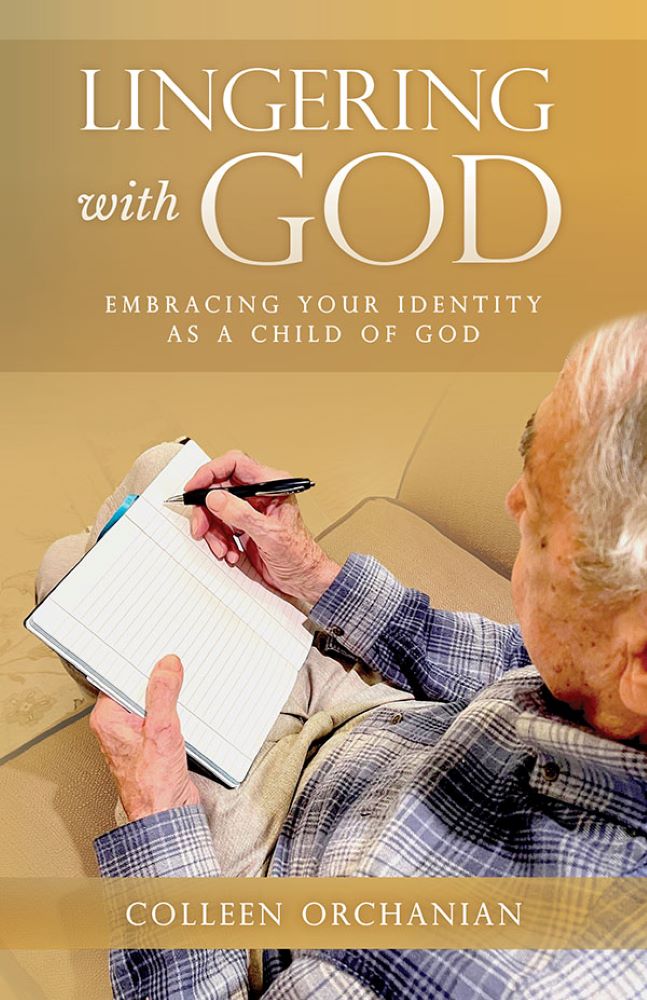Big Buts
In my prayer time recently I was thinking about how often I make exceptions. We have exceptions in grammar, like I before E except after C, and exceptions in legal contracts, like the mirrors are not included in the sale of the house. We have an exception in my family in that we are all girls – 10 of us – and just one boy. He’s the exception. Those are not big buts, just understandable exceptions.
On the other hand, sometimes we make exceptions in our lives that are not right. Here are some examples:
-
I am frustrated with a relationship and complain to my friend, pouring out all the ugly details. I might say, "I know this is gossip, but I really need to get it off my chest because I am so angry." That’s a big but.
-
Here is another. "I know I’m being selfish asking you to do this, but I really need it." I could just as easily say, "I know I’m being selfish, but I really don’t care." That’s a big but.
-
How about this. "I know I shouldn’t do this, but I don’t think it’s that big of a deal." Big but.
Have you heard yourself in one of those examples? Or maybe another one comes to mind. The big but comes when I claim to know what’s right and deliberately choose not to do it. We make exceptions.
When are we likely to do that – to make exceptions – to use the big but?
1. When we face temptation. We are all tempted to sin. That is the lot of humans since the fall of Adam and Eve. I have areas of temptation that you may not, and vice versa. The area of temptation doesn’t matter. The issue here is our excuse to give in to that temptation. We could be tempted to infidelity and say, "Yeah it’s wrong but he’ll never know." We could be tempted to gossip and say, "It’s wrong but I need to vent." Maybe we are tempted with an addiction. I might say, "I know I shouldn’t but it’s only one. It won’t matter." When we say BUT, we are acknowledging that we know right from wrong. We just convince ourselves that it doesn’t matter. The big BUT. I heard a quote recently by Clayton Christenson: Life is an unending stream of extenuating circumstances. How true is that!
2. When we are convinced we are right. Years ago someone was arguing a point with me using some data that I challenged. They agreed that the data was not valid but it could have been, so she was still right. The truth did not matter. It’s the old saying that the ends justify the means. That’s a really big BUT. Am I willing to be misleading or untruthful in order to win an argument or get my way? There have been times when I’ve withheld information because it may have kept me from getting approval on something. My rationale – "I know it’s not right, but this is a good idea, so it was justified." Really BIG BUT. It’s dangerous when we are convinced that we are right and will do anything to prove it.
3. When we are called to obedience but we disagree. I’m not talking about being obedient to something that is illegal or immoral. That’s different. But there are times when I’ve been told not to do something and I don’t agree. For example, when my husband and I were first married, we had a soft-top jeep. The jeep cover was getting ratty and my husband ordered a new one, which arrived while he was at work one day. He told me when it arrived NOT to try putting the cover on the jeep because I would mess it up. He may have even added the phrase, "because you are a woman." Well, you can imagine what I did. I know he told me not to do it, but I was going to prove that I was capable of taking the old one off and putting on a new one. If you are wondering if I was successful in that endeavor, the answer is NO. In my defense, it was not because I am a woman, but because it was the wrong size for our jeep. So I have that to hold on to. But it illustrates what I might do to get my way. (By the way, it was his jeep so I should have followed his will.) Anyway, I do not easily obey. I have even disobeyed bosses, the ones writing my paycheck. I always had an excellent reason, at least in my mind. I was the queen of Big Buts.
What’s behind every one of our Big Buts is pride. And pride is a great obstacle to spiritual growth. You can call it stubbornness or self-righteousness or arrogance or selfishness. What it really is is weakness. I don’t want to follow the rules. I want to do what I want to do.
Here’s a news flash. That is not okay for Christians. Jesus criticized the Pharisees a lot, while at the same time telling his followers to obey them. He said, "Don’t do what they do [because they were not living right], but listen to them and do what they say." That is so hard sometimes! We want to say to Jesus – and maybe we do, "I know you said such and such a thing (about divorce or lust or hate or whatever) but I’m an exception. This situation is an exception." It’s a really Big BUT. That is what we WANT to say, but Jesus is calling us to the truth and to obedience.
So what do we do with this - this desire to get our own way, to break the rules, to ask for an exception?
First, we have to acknowledge that we are guilty. If you listened to some of my examples and thought – yeah that’s a good reason for an exception – then I suggest that your heart may not be fully tuned to God’s heart. Jesus got baptized by John in the Jordan, not because he needed to repent but because he was setting an example for us. Scripture tells us that Jesus was obedient to his parents. But He was God Himself. Why would he be obedient to anyone? Because obedience is pleasing to God. He faced temptation just like we do, but he didn’t give in. He WAS the exception – the only one who could claim that, but He didn’t. I have to remember that when I want to be an exception. I have to admit that I am wrong, that I have some Big Buts in my life.
Once I have identified the ways I seek an exception – the Big Buts in my life – I need to get to the root of the problem. Of course, the ultimate root is pride, but we need to dig deeper into that. Am I worried about my reputation? Do I think someone will take advantage of me? Do I refuse to listen to others when we disagree because I don’t want to be wrong? Do I think too much of myself and too little of others? Do I have some wounds from my childhood that are causing problems today? Do I wonder if I can trust God or do I have to make everything happen by myself? Figuring this out will take some time and humility. It might even be painful, but this type of pain can bring us closer to God. We can have a richer encounter with Jesus. And when that happens, we have much greater peace.
When I know the source of my Big Buts, I take it to God in humble prayer. I ask for the strength and the grace to change. It likely won’t happen overnight, but it will happen. So we persevere.
We are a people of Big Buts, a people who look for exceptions. And you know what, we should be exceptions, but in a different way. We should be exceptional in our work – always doing the best we can. We should be exceptions in our service to God and others. We should be exceptions in the love we show to our family and friends. We should be exceptions in our generosity. We should be exceptions in our kindness toward others, even those who are very unlike us. We should be different from those who don’t believe.
Maybe, instead of saying – "I know I should not do this, but…"
We should be saying – "I know people will think I’m strange or a Jesus freak, but I’m going to do this anyway. I know I am right but I don’t need to win this argument. I know my way is better, but they don’t agree so I’ll do it their way and I’ll do my best. I know people won’t agree with this truth, but I’m going to say it anyway." Those are the kinds of buts we want to embrace. The buts that draw us closer to God, to following His Way. And His Way is good. No ifs ands or buts about it.
So with that, let’s consider a couple of questions to bring to prayer.
-
What are your Big Buts? In what types of situations are you likely to claim an exemption and why? You might want to reflect on this one over a few days or weeks.
-
How is God calling you to change your thinking about the exceptions you claim in your life?

